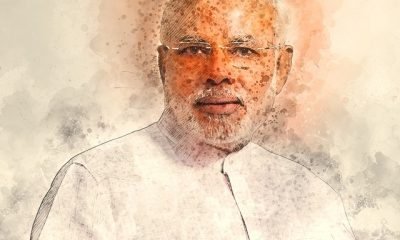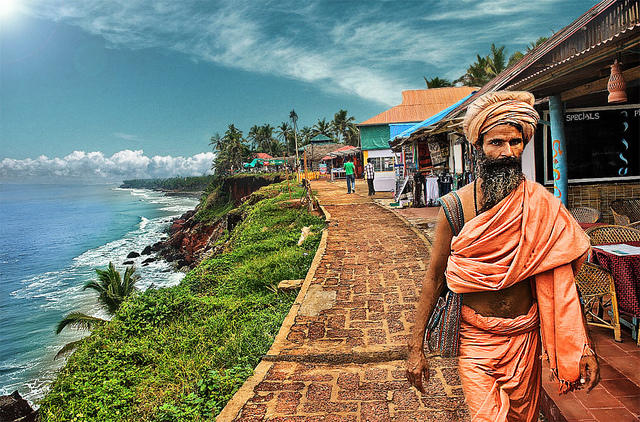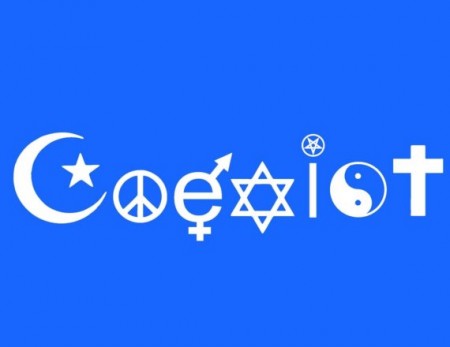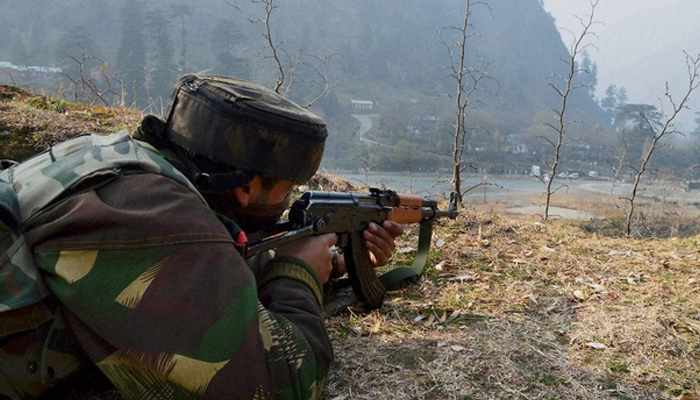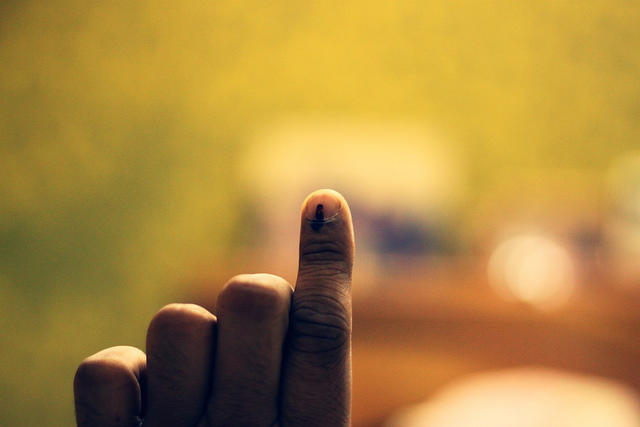Opinion
Article 370 and Indian Politics
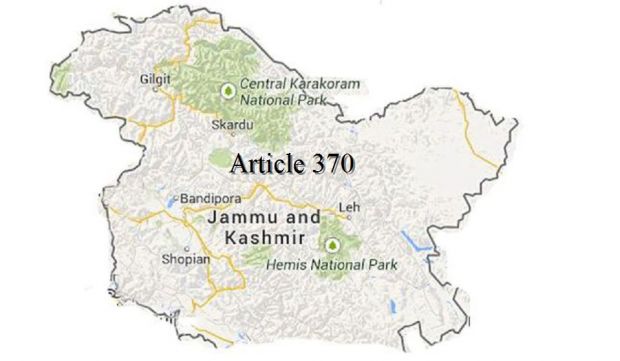
credit: deccanchronicles.com
It would not be perhaps wrong to say that like most parts of the country, Modi wave was also witnessed in the state of Jammu and Kashmir, wherein stakeholders of diverse communities reposed faith in the politics of BJP candidate Narendra Modi. And the winning of three important Lok Sabha seats by BJP candidates from the J&K state made it evident that people wanted NaMo “mantra” to resonate in the state. Some similar wave was swelled up in Kashmir, but had altogether different meaning and definition. In Kashmir, a Muslim majority region, people did not wish to see Hindu wing to rule, but at the same time the people wanted relief from monopolistic NC and Congress. The options before people were very few and specific. Taking advantage of the peoples’ dilemma at the moment of choosing either from tyrant and arrogant-NC-Congress or ‘inimical of Muslims’-BJP, the People’s Democratic Party (PDP) managed to secure rest of the Lok Sabha seats in the state.
Then arises a million dollar question what was so predicament among Kashmiris’ about BJP? What kind of feelings they had for Narendra Modi? The people in Kashmir were certain that they will prefer to vote for BJP but will not allow NC-Congress to exploit them anymore. People justify their stand of defying NC-Congress, maintaining that it is certain that people in Kashmir will die and suffer as long as these two political parties remain in power, but if BJP came into power, there would be probabilities. BJP’s biased inclination towards Hindu groups like RSS and VHP will either create havoc in the state to make J&K as an integral part of India or will perhaps let the aspirations of the people of the state to live.
Then, came Narendra Modi at the center heading BJP to garner record 380+ seats, surprisingly three from J&K. With this escalated the unspecified fear among the Kashmiris, because among his (Modi) various objectives, making J&K an integral part of India was on priority.
Although, NaMo at various instances during pre-polling campaigns spoke about the length and breadth of the susceptible technicalities of Jammu and Kashmir. Among his predetermined objectives, abrogation of Article 370 attracted a huge criticism as well as praise from all corners. He (Modi) knew that People in Kashmir Valley will not accept lotus, therefore he maneuvered to salve the so-called victim of step motherly treated Jammu by raising the issue of abrogating article 370. He (Modi) apprised the people of Jammu (mostly Hindus) that the abrogation of 370 will help Jammu to stand at par with Kashmir, which was taken as a politically motivated ploy by common people in the Kashmir. This blind shot of NaMo succeeded and BJP managed to secure three important seats.
What is Article 370?
Article 370 of the Indian constitution is a law that grants special autonomous status to Jammu and Kashmir. The article is drafted in Part XXI of the Constitution, which relates to Temporary, Transitional and Special Provisions notwithstanding anything in this constitution:
(a) The provisions of Article 238 shall not apply in relation to the State of Jammu & Kashmir.
(b) The power of Parliament to make laws for the said state shall be limited to
(i) those matters in the Union List and the Concurrent List which in consultation with the Government of the State, are declared by the President to correspond to matters specified in the Instrument of Accession governing the accession of State to the Dominion of India as the matters with respect to which the Dominion Legislature may make laws for that State and
(ii) Such other matters in the Said Lists as, with the concurrence of the Govt of the State, the President may, by order specify.
1. Explanation. For the purposes of this Article, the Govt of the State means the person for the time being recognized by the President as Maharaja of Jammu & Kashmir acting on the advice of the council of Ministers for the time being in office under the Maharaja’s Proclamation dated the fifty day of March 1948.
(c) The provisions of Article (1) and of this Article shall apply in relation to this State;
(d) Such of the other provisions of this Constitution shall apply in relation to that State Subject to such exceptions and modifications as the President may by order specify;
Provided that no such order which related to the matters specified in the Instrument of Accession of the State referred to in paragraph (i) of sub clause (1) shall be issued except in consultation with the govt of the State.
Provided further that no such order which relates to matters other than those referred to in the last proceeding proviso shall be issued except with the concurrence of the Govt of the State.
(2) If the concurrence of the Govt of the State referred to in para (ii) of Sub Clause (b) of Clause (1) be given before the Constituent Assembly for the purpose of framing the Constitution of the State is concerned. It shall be placed before such Assembly for such decision as it may take thereon.
(3) Notwithstanding the anything in the foregoing provisions of the article, the President may, by public notification, declare that this Article shall cease to be operative or shall be operative only with such exceptions and modifications and from such date as he may notify.
Provided that the recommendation of the Constituent Assembly of the State referred to in Clause (2) shall be necessary before the President issues such a notification.
Post-victory, BJP in general and NaMo in particular again raised the issue of 370, which till now was ok for common people of Kashmir, as most of the people in Kashmir are well versed with the Indian Constitution as well as its amendment procedure, which in Article 368 says that parliament can amend all, but basic structure of the constitution and abrogating 370 was equivalent to violation of the basic structure of the constitution. People in Kashmir also knew that to amend Article 370 parliament needs to constitute an original constituent assembly, which is next to impossible. So, there was nothing with NaMo to create panic about among the people of the Valley.
Sooner, the Member Parliament from Jammu, Dr Jitender Singh during his first ever press meet in Jammu after swearing-in raised controversial issue of the abrogation of article 370. The statement of MP received huge criticism from all corners of the state with daily newspapers swamping with intellectual opinions on the issue. Sensing gravity of the controversy, Dr Singh resists to continual denial mode, which showed that Lotus is not yet ready to confront people in Kashmir. Though, BJP’s promise to abrogate article 370 caused great inconvenience to the people in Kashmir, which started believing that Modi is inimical to Muslims and to some extent this fear cannot be over ruled. Reacting to the criticism over the abrogation of the Article 370, Modi government put it into back-burner and went into damage control mode by justifying their stand on special status of J&K.
However, I feel that instead of touching controversial article 370, if BJP in general and Prime Minister, Narendra Modi in particular would have talked about the deaths of more than 370 Kashmiris in past five years during unrest, it would have greatly influenced Kashmiris to introspect that BJP is not inimical to Muslims. If Narendra Modi would have asked state government about the deaths of the Kashmiri youth and had pressurized state government for independent inquiry for every individual death, the people of Kashmir have embraced BJP with folded fists. If Prime Minister would have delved the inhuman treatment Kashmiris met-with outside state and had chalked out plans for their security, it would have won the confidence of the Kashmiris. But unfortunately, like most of the political parties in India, BJP also eyed vote bank. They consider abrogation of special status of J&K more important that the death of the innocent people and usual human right violations, which is prevalent in Kashmir for the past more than three decades. BJP would have attempted to know the condition of half windows, reason for disappearances of youth and sporadic killing of youth in Kashmir either by military forces or by other armed forces.
The day when any political party, cutting across the religious, regional and political motives lend empathic, instead of sympathetic hand to Kashmiris, the people in Kashmir will present memorandum for abrogation of this special status in platter, because Kashmiriyat is famous for his hospitability and those who are hospitable are also generous and god fearing. Thus instead of creating confusion and controversy, BJP should try to get into the hearts of the people, only than Lotus would be accepted by the people in conflict torn state of Jammu and Kashmir.
(Pardeep Singh Research Scholar Department of Journalism and Mass Communication, Punjabi University Patiala, Punjab, India. Author has done Masters of Philosophy on ‘Media Coverage of Kashmir Conflict’ and has worked as a sub-editor with JK NewsPoint newspaper of J&K state.)
China
Nepal Hindu Rashtra: Time to Wrap Up Communism?

Nepal abolished the Constitutional Monarchy in May 2008 and declared itself as a Federal Democratic Republic. There was a new hope in Nepal as it was becoming world’s newest democracy even though it had dissolved the Hindu Rashtra. However, the democracy in Nepal immediately got into the tight grips of leftists and communists backed by China. It has been almost 12 years since monarchy was abolished in Nepal. Interestingly, the Himalayan country has already seen 11 Prime Ministers in this period. Thus, leaving the Nepalese people still yearning for good and stable governance.
Re-establish Hindu Rashtra
As the political instability is growing in Nepal, people are demonstrating concerns about the future of the country. In fact, Nepalese citizens are unhappy with frequent interference by China and India influencing its unstable communist regime. More voices are now growing in support of reinstating the Monarchy and declaring Nepal as world’s only Hindu Rashtra (which by default offers full religious freedom to other religious minorities as per Hindutva concept of Sarva Dharma Sama Bhava – all paths lead to one).
Former Deputy Prime Minister of Nepal, Kamal Thapa said that if political parties do not recognize the seriousness of reinstating the monarchy, then the country will head for a period of darkness. “Recently, we’ve had high-ranking officials from India and China come to Nepal to try and solve problems within the ruling party,” he said. “We cannot let others dictate what we want to do.”
Communist Party All Set to Suppress Protests, By Force
Kamal Thapa has firmly demanded an all party meet to discuss reinstating of monarchy. Throughout the month of December, 2020 Nepal has seen anti communism protests across the country in support of reinstating the monarchy and Hindu Rashtra. Most importantly, the demand has become a nationwide mass people’s movement. So much so that the communist regime had to send a directive to 77 districts in 7 provinces. The directive suggests suppressing the protests by force. Nevertheless, Rashtriya Prajatantra Party and other royalist groups have ignored this threat from the communist regime. Protester groups have pledged to strengthen the protest in the coming weeks.
Nepal: Demonstration held in capital Kathmandu, demanding restoration of monarchy in the country. pic.twitter.com/TFjmKu9U9Z
— ANI (@ANI) December 5, 2020
Role of China – Hope for Communism in Nepal
China’s ambassador to Nepal is known to have very close relationship with Nepalese Communist regime. In fact, She has been super effective in tilting Nepal’s posture towards its ideological partner, China. One of her greatest achievements in 2020 was artificially manufacturing a border conflict between Nepal and India. Consequently, souring relations between the two Hindu majority nations. In addition, she managed to silence Nepal’s communist government after China took one of Nepal’s border villages under its control. However, recent political turmoil in Nepal and a renewed demand for reinstating of Hindu Monarchy is showing that the situation is now out of Chinese hands
Role of India
Year 2020, was not a good year for India and Nepal relations. India was busy in controlling domestic Covid cases. On the other hand, China had launched an invasive campaign into Indian territory. In addition, India is always busy with Pakistan on its western borders. However, the surprise came to India when China was almost successful in creating a new border tension between India and Nepal.
Those who do not know about Indian government should note that the current ruling party in India finds itself ideologically opposite to communism. This further creates differences between the two countries.
Communist party in Nepal has blamed India for supporting the ongoing anti communism protests in Nepal. However, former advisor to Nepal’s PM has suggested there is no proof that India is fueling pro Monarchy, anti communism demand in Nepal.
Nevertheless, There are certain influencers in India who have, in their personal capacity, expressed support for reinstating the Hindu monarchy. Yogi Adityanath, who is the Chief Minister of an Indian state bordering Nepal, said in 2015 that Nepal should declare itself a Hindu Monarchy. Readers should note that in 2015 Yogi Adityanath was not the Chief Minister yet. However, today he is not only popular in south of Nepal, his popularity is growing in Nepal as well.
Will The World See the first Hindu Rashtra?
It is difficult to answer this question at this moment. However, Nepalese communist government could not resolve the political instability and in December 2020 Nepalese government dissolved the parliament. Nepal will see next elections in April – May 2021. Hopefully, the world will see Nepal’s 12th Prime Minister in 13 years or may be a Hindu King? Royalists and protester groups have expressed confidence in winning next elections. We have our eyes on Nepal for updates.
Opinion
America’s Justice System – The Need For Reform
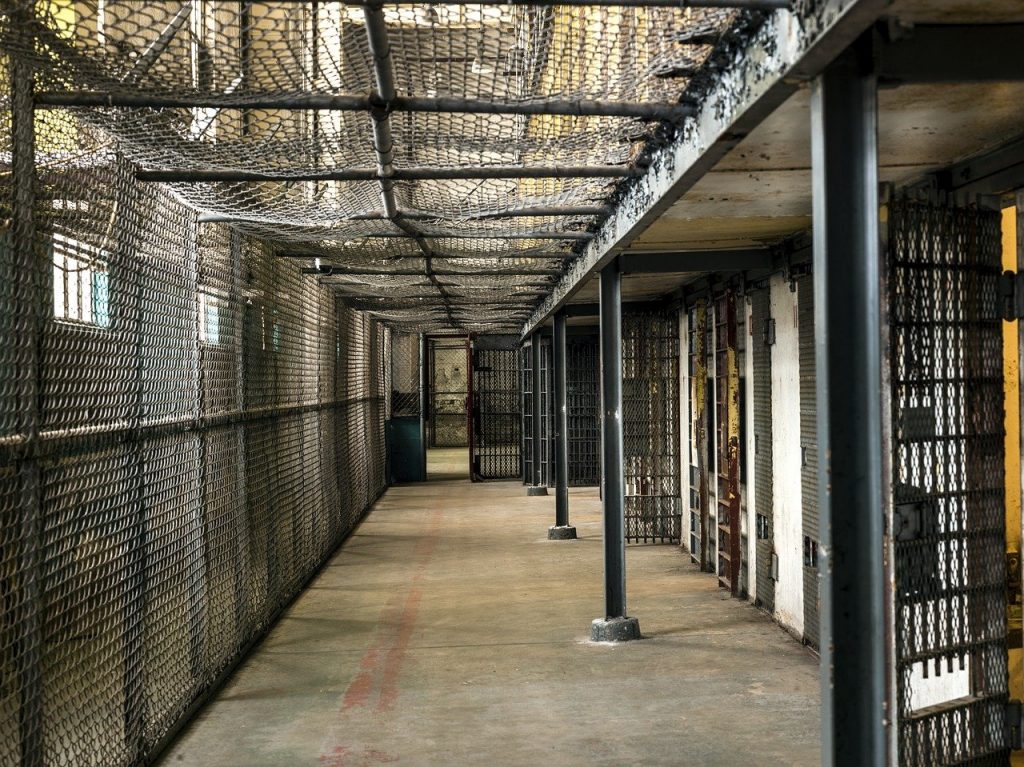
A recent poll by the National Opinion Research Centre revealed that 95% of Americans favour vital criminal justice reforms. This is hardly surprising, given that several people of varying racial, partisan and ideological dispositions have called out the justice system over its many failures throughout the years. Most Americans received the Trump Administration’s First Step Act as a step in the right direction, as about 60% of people approved the criminal justice reform bill according to a 2018 poll. However, many people still believe the justice system’s approach to crime is ineffective and needs dire change, and these are some reasons why.
Prison population and funding concerns
Research conducted revealed America has about 2.3 million prisoners, making the US the country with the highest incarceration rate globally. Experts estimate that the country’s prison population has grown by a whopping 340% over the past three decades; new prisoner admissions into jails are higher than prisoner release numbers. The cost of maintaining the nation’s prisons at taxpayers’ expense has inspired a lot of backlash and calls for budget cuts. According to research, slashed correction spending was the preferred option by most states to balance their budgets and redirect spending to other areas.
Minimum mandatory sentences
Minimum mandatory sentences are statutes that force judges to give defendants convicted of a crime the minimum prison sentence. Mandatory sentences rob judges of the traditional way of considering the defendant’s character and the unique circumstances surrounding offences. Even when represented by criminal defense attorneys with many years’ experience, defendants often succumb to prosecutors’ pressure to plead guilty or face more severe charges with higher mandatory sentences. The guilty plea bargain consequently resolves about 95% of both federal and state court cases. Research also shows that about half of inmates in federal prisons are doing time for drug offences- causing overpopulation in the prison system.
Growing number of people killed by the police
An estimated 1000 civilians are killed by police officers annually in the US. The frequency of police brutality cases over the years requires immediate reform to the American justice system. Data suggests that the incidence of fatal police shootings is higher among African-Americans than any other ethnicity, inspiring movements like the ‘Black Lives Matter’ campaign to press on with protests for significant police etiquette reforms towards coloured minorities. The police force faces incessant accusations of racial profiling, indiscriminate use of power, and poor discretion, which has led a reported 58% of Americans to think policing needs major reforms through measures like better-trained officers, and wearing body cameras.
Evolving public opinion on crime
Research released by the Sentencing Project and The Justice Policy Institute reveals that more people in conservative states are embracing preventive, rehabilitative, and alternative sentencing options for non-violent offenders. Most Americans now view the prevention of crime as the most vital function of the justice system, as 77% of Americans think that focusing more on character education and after-school programs would be cost-effective by reducing the number of people going to jail. Almost two-thirds of Americans also believe in the need for lighter sentences with more useful, reformative programs in prisons that will benefit inmates upon release. Therefore, support for harsh penalties that harden criminals and make them a more significant menace when reintroduced into society has dwindled.
Opinion
The History Question: Is It Better to Remember or to Forget?
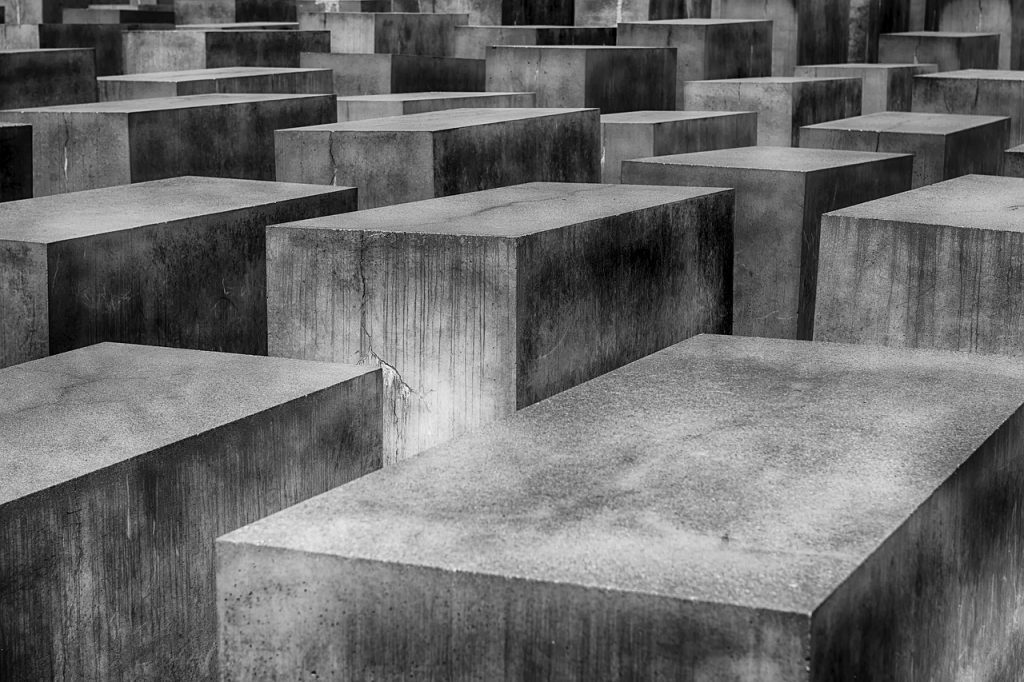
Years ago, a philosopher by the name of George Santayana said a phrase that fuels many debates to this day. His original saying is “those who cannot remember the past are condemned to repeat it”, although, many sources now present it as variations of “those who cannot learn from history are doomed to repeat it”. The latter definitely has more substance to it in the light of the ongoing debate about how much history we should be learning and how.
Is It Better to Remember or Forget About the Past?
On one hand, Santayana was right. Learning about the past is essential in order for people to progress. One also shouldn’t overlook the importance of remembrance and paying respects to the dead, both those who pushed the progress forward and those who have fallen victims to major tragedies that could and should have been averted.
The main argument in favor of learning about the past is that its knowledge is necessary for preventing the same thing happening in the future. Having it one can see the signs and stop the tragedy before it gains momentum.
That’s sound in theory, but the reality is always different. For example, today people are surely forgetting, and the much-critiqued education system is only partially at fault here. Even the greatest of tragedies weren’t spared this fate. It’s a proven fact that about two-thirds of millennials today don’t know about the Holocaust, and this number is surely greater for generations that follow them. In the school history course, the subject of one of the greatest disasters in history is barely touched, if touched at all. And outside of a history classroom, one can only see small, but terrifying, glimpses of it at the Holocaust Museum and other museums that rarely attract many visitors. And now we are witnessing a rise of antisemitic crime.
Are these two facts related? Does the lack of awareness about the horrors done in the name of Aryan supremacy contribute to the fact that right-winged extremists seem to be gaining popularity again?
It does, but by how much? That is the question that no one can truly answer.
And what about other genocides? The Holocaust had the highest death toll, but it was far from the only genocide in history. And quite a few of those happened after World War 2 and before the memory of the atrocities against the Jews began to fade. This means that while forgetting history is a factor, it’s not the deciding factor in its repeats.
But what is that thing responsible for the reenactment of past mistakes and tragedies?
Learning. This is the important thing that is most often overlooked when citing Santayana’s famous saying. It’s not enough to learn about the past and know the facts of things that happened. It’s important to learn from those facts and put in place protections that will prevent them from happening again. And this is something that humanity, as a whole, has yet to succeed in doing.
Dwelling in the Past Can Be Just As Bad
One also shouldn’t forget that there is such a thing as “too much history”. The Bosnian War and genocide that happened there in the 1990s is a vivid example of how the past can be exploited by political powers. Used as a part of propaganda, which fueled the war, history can become a weapon in the hands of those who want to use it for their own goals.
And this is what humans have been doing since the dawn of time. There is always someone who will use any means necessary to achieve whatever it is they wish. This results in wars and genocides, and hundreds of smaller but no less devastating tragedies.
Therefore, the problem isn’t whether people should be learning history but human nature itself. Perhaps, teaching this can help fix this fundamental flaw and truly stop the worst of the past from repeating.
-

 Travel11 months ago
Travel11 months agoImmerse Yourself in Nature: Explore Forest Bathing with a New Guidebook
-

 Europe10 months ago
Europe10 months agoBarcelona and Athens: cities that will leave an everlasting impression
-

 Health10 months ago
Health10 months agoExperience in clinical quality: What is it, and why is it important?
-

 Technology11 months ago
Technology11 months agoHow Virtual Fly Elevates the World of Flight Simulators
-

 Business6 months ago
Business6 months agoServiceNow Development Consultancy: Business Process Automation as Disruptive Technology
-

 Environment7 months ago
Environment7 months agoThe Future of Fashion: The Rise of Eco-Conscious Brands in the Luxury Market
-

 Business9 months ago
Business9 months agoScreen Printing Services: A Beginner’s Guide to Avoiding Mistakes and Maximizing Your Investment
-
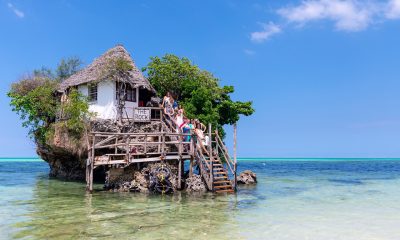
 Travel7 months ago
Travel7 months agoEnjoy a luxury holiday in Zanzibar


